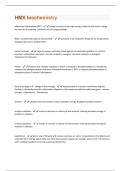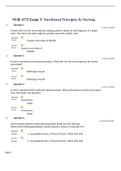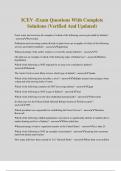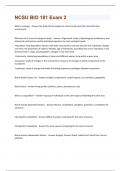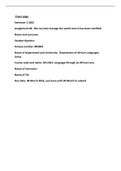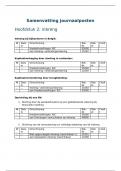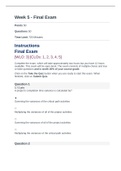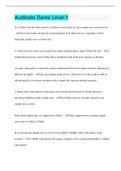Exam (elaborations)
HMX biochemistry Questions With Answers Graded A+ Assured Success
- Course
- Institution
adenosine triphosphate (ATP) - energy currency of life, high energy molecule that stores energy we need to do anything. Universal unit of energy exhange NAD+, nicotinamide adenine dinucleotide - coenzyme in all living cells. Required for fundamental biological processes. Oxidized form active tr...
[Show more]
